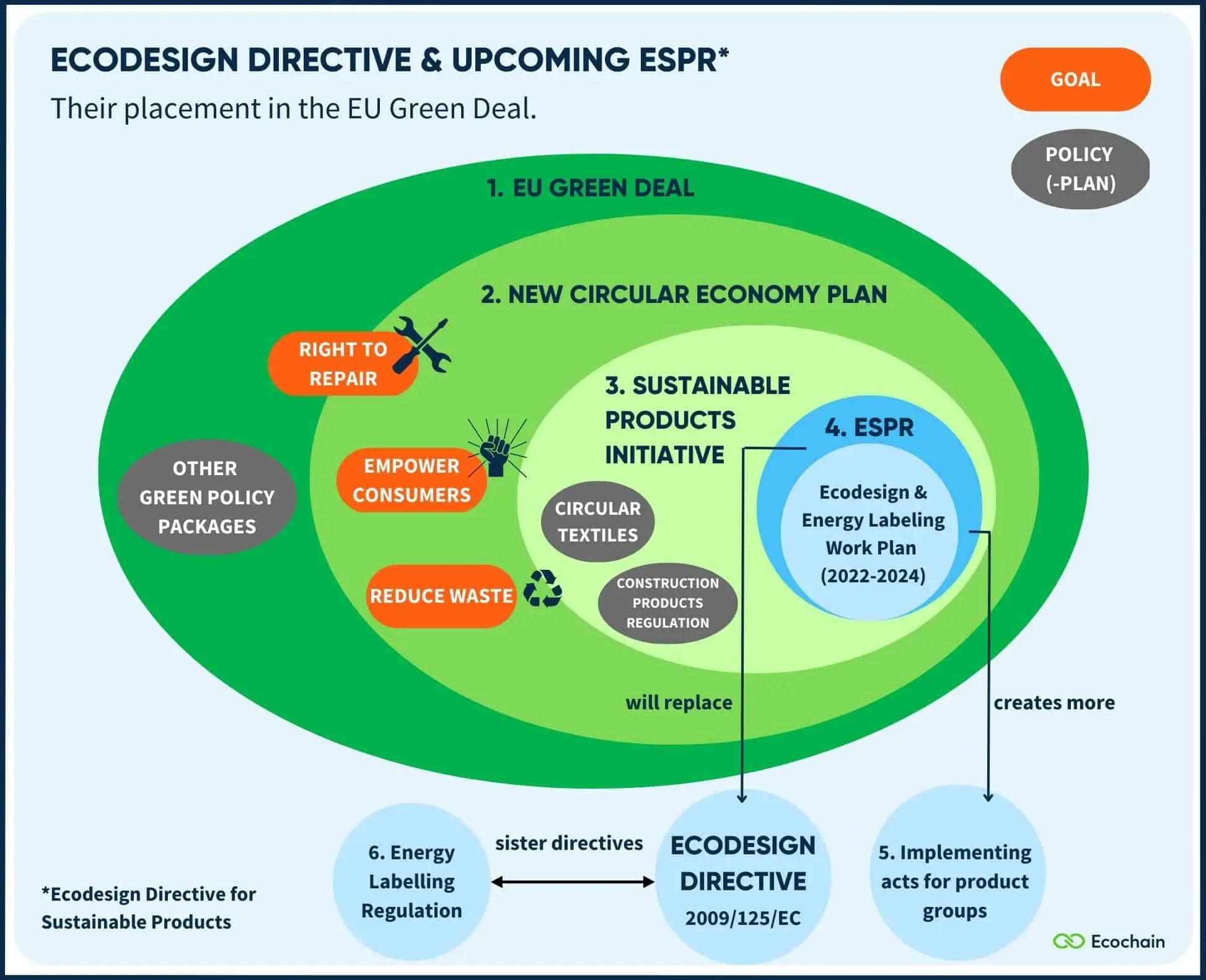Ecodesign for Sustainable Products Regulation (ESPR): Driving Sustainability in the EU
The Ecodesign for Sustainable Products Regulation (ESPR) represents a pivotal component of the European Union's strategy to promote a circular economy and sustainable development. This regulation sets stringent requirements for nearly all physical goods sold within the EU, excluding food, feed, and medicines, focusing on durability, repairability, recyclability, resource efficiency, and the reduction of hazardous substances.
Key Elements of the Regulation
🧩 Durability and Repairability:
Products must be designed for longevity and ease of repair, ensuring spare parts and repair information are accessible.
🧩 Recyclability and Circularity:
Emphasises the use of recycled materials and easy disassembly for recycling at the end of a product's lifecycle.
🧩 Resource and Energy Efficiency:
Mandates efficient use of resources, including energy, during manufacturing and product use.
🧩 Substances of Concern:
Aims to reduce hazardous substances in products, promoting safer alternatives.
🧩 Digital Product Passports:
New requirements include digital passports providing detailed information about a product's sustainability, materials, and recycling options.
🧩 Banning Destruction of Unsold Goods:
Prohibits the destruction of unsold textiles and footwear to reduce waste.
How ESPR fits into the wider context of the EU Green Deal. Credit: Ecochain
Importance of the Regulation
The ESPR is critical to advancing the EU's Green Deal and Circular Economy Action Plan, focusing on the entire product lifecycle to reduce environmental impact and promote sustainable materials. This regulation is a significant step toward the EU's goal of climate neutrality by 2050.
Impacted Stakeholders
1. Manufacturers:
Must redesign products to meet new sustainability standards and provide detailed information about components and environmental impact.
2. Importers and Distributors:
Products entering or being sold within the EU must comply with new requirements.
3. Retailers:
Must ensure the products they sell adhere to these standards.
4. Consumers:
Will benefit from more durable, repairable, and sustainable products.
5. Waste Management Companies:
Need to adapt to new recycling and disposal practices aligned with the regulation’s goals.
Implementation and Enforcement
1. Implementation Timeline:
The first working plan, outlining specific product categories and timelines, is expected within nine months of the regulation’s adoption, with full implementation occurring over several years.
2. Market Surveillance:
National authorities in each EU member state will monitor products to ensure compliance.
3. Penalties:
Non-compliance could result in penalties, including fines and bans on selling non-compliant products.
4. Digital Product Passports:
These passports will be key for transparency, allowing authorities and consumers to access detailed information about a product’s sustainability credentials.
ESPR anticipated schedule of adoption
The Ecodesign for Sustainable Products Regulation (ESPR) is a groundbreaking initiative that aims to make sustainable products the norm in the EU. It has broad implications for manufacturers, retailers, and consumers, driving significant advancements in sustainability and contributing to the EU’s goal of climate neutrality by 2050.
❔How will ESPR affect your business? Share the challenges and opportunities you foresee in the comments below. Follow Wood Consulting for more insights and updates on sustainability and regulatory compliance, and other Hardware-related topics❔

